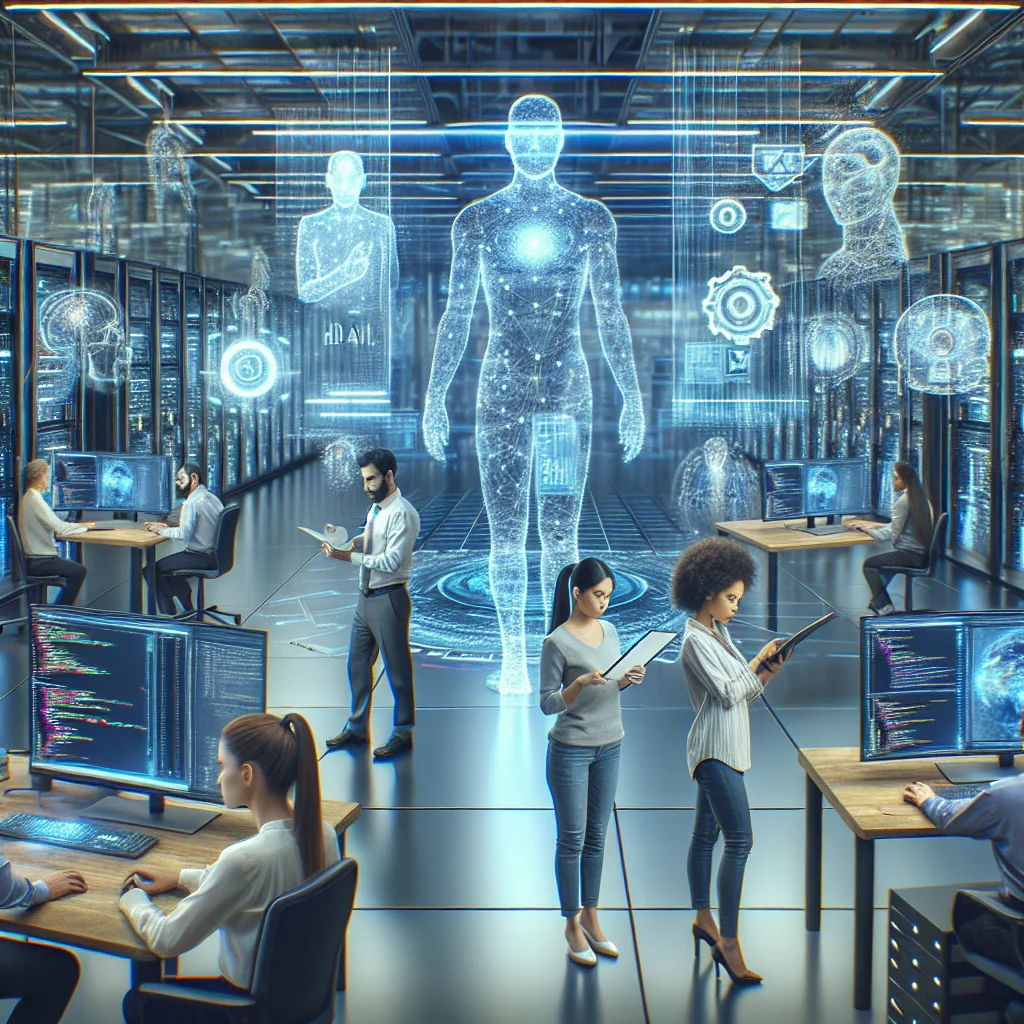AI-Driven Development: Trends Shaping 2025 Software Engineering
May 20, 2025

In 2025, software engineering is undergoing a radical transformation driven by artificial intelligence (AI) technologies. As developers seek to enhance productivity and streamline workflows, understanding the latest AI-driven trends becomes essential. This article delves into the implications of AI on software development, highlighting emerging tools and practices that can empower developers in their projects.
AI as a Catalyst for Software Development
AI is revolutionizing software development by automating tedious tasks and enabling developers to focus on more strategic, creative aspects of their work. Tasks such as code generation, bug detection, and even deployment processes are increasingly being optimized through AI algorithms. For instance, GitHub Copilot, which leverages OpenAI’s Codex, assists developers by suggesting code snippets and completing functions automatically, drastically improving their coding speed and efficiency.
Additionally, AI can analyze vast amounts of data to identify patterns, allowing for improved decision-making during the development lifecycle. This predictive capability supports developers in estimating project timelines and resource allocation more effectively, ultimately leading to better project outcomes.
Enhanced Testing and Quality Assurance
Quality assurance (QA) processes have also evolved significantly due to AI technologies. With the advent of AI-driven testing frameworks, manual testing is being supplemented—and in many cases replaced—by automated testing routines that learn from past code changes and user interactions. Tools like Test.ai and Applitools are making strides in this space, using machine learning to detect visual and functional anomalies in software applications.
These advancements enable teams to perform extensive tests quickly and accurately, ensuring that the final product meets quality standards while reducing time spent in QA cycles. By employing AI, software teams can achieve faster release cycles, a crucial aspect in today’s fast-paced development landscape.
Personalized Development Experiences
The ability of AI to analyze user behavior and preferences also plays a pivotal role in personalizing the development environment. Various Integrated Development Environments (IDEs) are now integrating AI features that adapt based on individual developer’s coding habits. For example, Visual Studio Code has introduced intelligent code suggestions tailored to the user’s previous coding style, enhancing the overall experience and efficiency.
Moreover, AI can assist in onboarding new developers by generating personalized learning paths that align with their coding proficiency and project requirements, enabling a smoother transition into the team.
The Role of AI in DevSecOps
As security remains a top concern in software development, incorporating AI into DevSecOps practices is becoming increasingly important. AI can automate security monitoring, analyze code for vulnerabilities, and even predict potential security threats based on existing vulnerabilities. Tools such as SonarQube and Snyk illustrate how AI can continuously monitor code health and security, enabling proactive measures against attacks.
This shift not only enhances security protocol adherence but also instills a culture of accountability and vigilance within development teams.
Collaborative Coding and AI-Powered Pair Programming
AI-driven collaborative tools are also changing how software teams interact. Platforms like Replit and CodeSandbox are maximizing team collaboration through AI-powered pair programming features that allow developers to code together in real time, regardless of geographic boundaries. These tools leverage AI to suggest task distribution, highlight coding best practices, and even detect potential issues during live sessions.
Such capabilities promote a learning environment where team members can benefit from each other’s expertise while also enhancing productivity across the board.
Future of AI in Software Engineering
The innovations brought forth by AI are just the beginning. As technology evolves, further advancements will continue to shape best practices in software engineering. With ongoing improvements in machine learning algorithms, integration with other technologies like blockchain and cloud computing, and a more profound understanding of user needs, the future landscape of AI in software development remains bright.
Companies will need to remain agile and ready to adapt to these changes, incorporating ongoing training and development for their teams to fully leverage AI advancements.
Summary
As we delve deeper into 2025, it is clear that AI is not just an auxiliary tool but a fundamental component that is reshaping software engineering. From improving code quality to enhancing security and personalizing developer experiences, AI is making significant strides. Understanding these trends is essential for developers looking to excel in a continuously evolving digital landscape.
Back